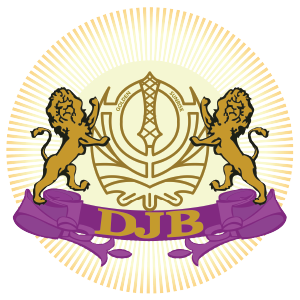
Building Information Modeling (BIM) has revolutionized the construction industry, transforming how projects are designed, constructed, and managed. BIM enables collaborative, data-driven, efficient workflows, improving project outcomes, reducing costs, and minimizing risks.
However, with numerous BIM construction solutions available, choosing the right one can take time and effort. This article will discuss the essential factors to consider when selecting the right BIM construction solution for your project to ensure its success.
Project Requirements and Scope
The first step in choosing the right BIM construction solution is thoroughly understanding your project’s requirements and scope. Consider the size, complexity, and type of the project, as well as the goals and objectives you want to achieve with BIM implementation.
Different BIM solutions may be suitable for different types of projects. For instance, a small residential project may require a more basic BIM solution. In contrast, a large commercial project may need a more robust and advanced BIM solution to handle the complexities.
Additionally, consider the stakeholders involved in the project, such as architects, engineers, contractors, and owners, and their respective roles in the BIM workflow. Ensure that the BIM solution you choose supports all project stakeholders’ collaboration and coordination requirements and can effectively integrate and exchange data among different disciplines and software platforms.
Functionality and Features
The functionality and features of the BIM construction solution are crucial factors to consider. BIM solutions can vary significantly in terms of their capabilities and features. Some may offer basic functionalities such as 3D modeling and clash detection, while others may provide advanced features such as quantity takeoff, scheduling, cost estimation, and construction sequencing.
Assess the features of the BIM solution about your project requirements. Consider the specific needs of your project, such as the type of construction, materials, and systems involved, and ensure that the BIM solution can effectively address those requirements.
For example, if your project involves complex MEP (mechanical, electrical, plumbing) systems, ensure the BIM solution has robust MEP modeling and coordination capabilities.
Moreover, consider the scalability of the BIM solution. Can it accommodate the future needs of your project as it progresses? Can it handle changes and revisions in the project scope? A scalable BIM solution will allow flexibility and adaptability throughout the project lifecycle.

User Interface and Ease of Use
The user interface and ease of use of the BIM construction solution are crucial factors that can impact the project team’s adoption and utilization of the software. A user-friendly interface and intuitive workflows can facilitate efficient and effective use of the BIM solution, resulting in increased productivity and a reduced learning curve for the project team.
When evaluating BIM solutions, consider the user interface and usability of the software. Is the interface intuitive and easy to navigate? Are the tools and functionalities easily accessible? Does the software provide helpful tutorials, documentation, and support resources? These are essential to assess to ensure your project team can quickly adopt and utilize the BIM solution.
Additionally, consider the compatibility of the BIM solution with your existing software and workflows. Will it require significant changes in your current processes? Does it integrate well with your existing software platforms? A BIM solution seamlessly integrating with your current workflows can minimize disruptions and ensure a smoother transition to BIM implementation.
Interoperability and Data Exchange
Interoperability and data exchange are critical factors when selecting a BIM construction solution. BIM involves exchanging and integrating data among stakeholders and disciplines throughout the project lifecycle.
Therefore, the ability of the BIM solution to effectively exchange and integrate data with other software and systems is crucial for seamless collaboration and coordination among project stakeholders.
Evaluate the interoperability of the BIM solution with other commonly used software in the construction industry, such as CAD (Computer-Aided Design), estimating, scheduling, and project management software.
Does the BIM solution support industry-standard file formats, such as IFC (Industry Foundation Classes), allowing open and standardized data exchange? Does it provide easy and reliable data import and export capabilities? These are essential to ensure the BIM solution can effectively integrate with your existing software ecosystem.
In addition, consider the data exchange capabilities within the BIM solution itself. Does it allow for an easy and efficient data exchange among different disciplines, such as architectural, structural, and MEP? Can data be easily updated and synchronized in real time, ensuring that all project stakeholders are working with the most up-to-date information?
A BIM solution enabling seamless data exchange and interoperability can significantly enhance collaboration and coordination among project stakeholders, improving project outcomes.
Cost and ROI
Cost is a significant consideration when choosing a BIM construction solution. BIM software can vary greatly in pricing models, licensing options, and subscription plans. Assess the total cost of the BIM solution, including the initial purchase or subscription cost, ongoing maintenance and support fees, and additional training, implementation, and customization costs.
Consider the return on investment (ROI) of the BIM solution. How can it positively impact your project outcomes and bottom line? Will it result in cost savings through improved coordination, reduced rework, and enhanced communication among project stakeholders? Will it increase productivity and efficiency, resulting in faster project delivery? A BIM solution that provides a favorable ROI can justify the investment and contribute to the success of your project.
Support and Training
The level of support and training provided by the BIM solution provider is another critical factor to consider. BIM implementation requires a certain level of technical expertise and proficiency. Therefore, evaluating the support and training offered by the BIM solution provider is essential to ensure your project team can effectively utilize the software.
Think about the responsiveness and availability of customer support, including technical support, training resources, and documentation. Does the BIM solution provider offer comprehensive training programs like on-site training, online tutorials, and documentation? Is there a community of users or forums where project team members can seek assistance and share knowledge?
A BIM solution with robust support and training options can empower your project team to utilize the software and achieve project success effectively.
Vendor Reputation and Reliability
The reputation and reliability of the BIM solution vendor are essential factors to consider when making your decision. Research the vendor’s history, reputation, and track record in the construction industry. Look for customer reviews, testimonials, and case studies to gain insights into the experiences of other users with the BIM solution.
Consider the vendor’s commitment to product development, updates, and technical support. Does the vendor regularly release updates and improvements to the software? Do they have a roadmap for future growth? Is the vendor financially stable and reliable, ensuring continued support and development of the BIM solution in the long run?
A reputable and reliable BIM solution vendor can provide peace of mind and assurance that the software will be continuously supported and improved, enhancing the longevity and sustainability of your BIM implementation.
Many construction firms and companies have become famous for outsourcing BIM (Building Information Modeling) construction services. BIM is a representation of a structure’s overall characteristics, which facilitates better collaboration, coordination, and communication among various stakeholders in a construction project.
Why Outsource a BMI Construction Service
Outsourcing BIM construction services involves partnering with external BIM experts or firms to handle specific aspects of the BIM process. Here are some key reasons why construction firms may outsource BIM construction services:
- Cost-effectiveness
Outsourcing BIM construction services can be more cost-effective than hiring and training an in-house BIM team. Outsourcing allows construction firms to access specialized BIM expertise without investing in additional resources, such as software, hardware, and training. This can result in significant cost savings, especially for smaller firms or projects with limited budgets.
- Access to specialized expertise
BIM is a complex and rapidly evolving field that requires technical knowledge and skills. Outsourcing BIM construction services enables construction firms to leverage the expertise of external BIM professionals who are well-versed in the latest BIM tools, technologies, and best practices. This can result in higher-quality BIM deliverables and more accurate project outcomes.
- Scalability and flexibility
Outsourcing BIM construction services allow construction firms to scale their BIM capabilities up or down based on project requirements. Construction projects often have fluctuating demands for BIM services. Outsourcing will enable firms to easily adjust their BIM resources as needed without the overhead costs of hiring or laying off in-house staff.
- Improved focus on core competencies
Outsourcing BIM construction services allows construction firms to focus on their core competencies, such as project management, Design, and construction, while leaving the BIM-related tasks to specialized BIM service providers. This can result in improved efficiency and productivity in the overall construction process.

- Faster project delivery
BIM is known for its ability to streamline construction processes and reduce project timelines. Outsourcing BIM construction services can further expedite project delivery by leveraging the expertise and experience of external BIM professionals who are well-versed in efficient BIM workflows and methodologies.
- Reduced risk
BIM projects require accurate data management, coordination, and collaboration among various stakeholders. Outsourcing BIM construction services to experienced professionals can help reduce the risk of errors, omissions, and clashes in the BIM model, resulting in fewer reworks, delays, and costly mistakes during construction.
- Access to advanced technologies
BIM constantly evolves, with new tools, technologies, and methodologies being developed regularly. Outsourcing BIM construction services allows construction firms to access the latest BIM technologies and devices without investing in expensive software and hardware. This can result in improved BIM capabilities and project outcomes.
- Improved collaboration and communication
Building Information Modeling (BIM) necessitates efficient teamwork and communication among diverse stakeholders, such as architects, engineers, contractors, and owners. Outsourcing BIM construction services can facilitate seamless communication and coordination among these stakeholders, leading to better decision-making, improved project coordination, and reduced rework.
Final Thoughts
Choosing the right BIM construction solution is a critical decision that can significantly impact the success of your construction project. By considering the project requirements and scope, functionality and features, user interface and ease of use, interoperability and data exchange, cost and ROI, support and training, and vendor reputation and reliability, you can make an informed decision that aligns with your project goals and objectives.
Remember to carefully evaluate the specific needs of your project and engage with key stakeholders, such as architects, engineers, contractors, and owners, in the decision-making process. Consider conducting pilot projects or trials with different BIM solutions to test their functionality and performance in a real-world construction environment. This can help you determine the best solution for your project and team.
DJBH Global is the name you can count on for any BIM needs. Contact us to know more about our services.
